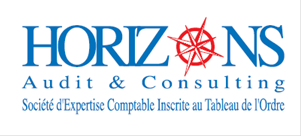Establishment of Companies
Nos prestations
Establishing a company, it may be a hard task to do for the entrepreneur, but our company, make things easier than you think.
In phase of constitution, HORIZONS AUDIT & CONSULTING intervenes near a national and international customers operating in particular in offshore regime for the following missions:
Help in choosing the most advantageous tax system
- Management of the formalities for the obtaining of the premiums and subsidies of investment of the State
- Assistance to financial institutions (banks, investment funds, SICAR, Tunisian Investment Fund)
Foreign staff assistance for expatriation:
- Obtaining the certificate of non-submission to the employment contract
- Formality at the bank
- Special tax return
- Tax discharge in case of permanent departure
- Exemption scheme 4 years for new projects. .It must indeed be recalled that Article 13 of the LF2018 provided that “newly created companies that are the subject of declarations of investment projects in the years 2018 and 2019 will benefit from the exemption of income tax and corporation tax for a period of four years from the effective date of entry into operation “.
- Total exporting regime (preferential rate of 10%)
- Regional Development Plan (Total Exemption of 5 years or 10 years depending on the zone)
- Agricultural Development Regime (Total Exemption of 10 years)
- Regime of health or educational institutions (Deduction 2/3 of profits)
- Regime of cultural production establishments (Deduction 2/3 of profits)
- Regime of companies specializing in the collection, recovery and recycling of waste (Deduction 2/3 of profits)
- National interest projects scheme: 500 jobs or 50 million dinars or more of investment cost (Exemption 10 years)
- API level formalities
- Formality at the recipe level
- Formalities at the tax audit services level
- Formality at the level of the commercial register
- Customs formalities
- Market research and economic information collection:
- A process
- The implementation
- Tax audit
- Exemption scheme 4 years for new projects. .It must indeed be recalled that Article 13 of the LF2018 provided that “newly created companies that are the subject of declarations of investment projects in the years 2018 and 2019 will benefit from the exemption of income tax and corporation tax for a period of four years from the effective date of entry into operation “.
- Total exporting regime (preferential rate of 10%)
- Regional Development Plan (Total Exemption of 5 years or 10 years depending on the zone)
- Agricultural Development Regime (Total Exemption of 10 years)
- Regime of health or educational institutions (Deduction 2/3 of profits)
- Regime of cultural production establishments (Deduction 2/3 of profits)
- Regime of companies specializing in the collection, recovery and recycling of waste (Deduction 2/3 of profits)
- National interest projects scheme: 500 jobs or 50 million dinars or more of investment cost (Exemption 10 years)
- Exemption scheme 4 years for new projects. .It must indeed be recalled that Article 13 of the LF2018 provided that “newly created companies that are the subject of declarations of investment projects in the years 2018 and 2019 will benefit from the exemption of income tax and corporation tax for a period of four years from the effective date of entry into operation “.
- Total exporting regime (preferential rate of 10%)
- Regional Development Plan (Total Exemption of 5 years or 10 years depending on the zone)
- Agricultural Development Regime (Total Exemption of 10 years)
- Regime of health or educational institutions (Deduction 2/3 of profits)
- Regime of cultural production establishments (Deduction 2/3 of profits)
- Regime of companies specializing in the collection, recovery and recycling of waste (Deduction 2/3 of profits)
- National interest projects scheme: 500 jobs or 50 million dinars or more of investment cost (Exemption 10 years)
Tax audit:
This “Blank taxes verification” mission will assess the tax risks that the company may face in the event of a tax adjustment, according to two main objectives:
1 / Objective of checking the regularity of taxation:
It is a matter of checking compliance with accounting and tax obligations (examples: compliance with the limit of 5 000 dinars for cash expenses, withholding deductions correctly deducted, Legal books compliance with regulation, No negative cash balances, indications of Fees on employer declaration etc.)
The tax audit also aims to ensure that the accounting documents and treatments comply with the regulations in force (examples of invoices containing mandatory information, justification of movements on the associate accounts, registration of contracts and minutes, etc.)
2 / Strategic effectiveness objective:
It is a question of judging to what extent the company has exploited the advantages and tax incentives available, for example, the client can be oriented towards choices such as:
- The possibility of opting for the system of liability for VAT
- The possibility and conditions of obtaining a refund of VAT credit or tax.
- The choice of a depreciation policy
- The advantages of reinvesting in certain activities (companies in regional development zones, agricultural enterprises, companies operating in the health, education or environmental sector, mutual funds and SICARs, etc.)
- The formation of an international trading company
L’audit fiscal:
Cette mission de « vérification à blanc » permettra d’évaluer les risques fiscaux que pourrait subir l’entreprise en cas de redressement fiscal, selon deux objectifs principaux :
1/ Objectif de contrôle de la régularité fiscale :
Il s’agit de vérifier le respect des obligations comptables et fiscales (exemples : respect de la limite de 5000 dinars pour les dépenses en espèces, retenues à la source correctement déduites, livres côtés et paraphés, absence de soldes de caisse négatifs, indications des honoraires sur la déclaration d’employeur etc…)
L’audit fiscal vise également à s’assurer de la conformité des pièces et traitements comptables à la réglementation en vigueur (exemples factures portant les mentions obligatoires, justification des mouvements sur les comptes associés, enregistrement des contrats et des PV etc…)
2/ Objectif de d’efficacité stratégique :
Il s’agit de juger dans quelle mesure l’entreprise a exploité les avantages et les aides fiscaux disponibles, on pourra par exemple orienter le client vers des choix tels que :
- La possibilité d’opter au régime d’assujettissement à la TVA
- La possibilité et les conditions d’obtention un remboursement du crédit de TVA ou d’impôt.
- Le choix d’une politique d’amortissement
- Les avantages du réinvestissement dans certaines activités (entreprises dans des zones de développement régionales, entreprises agricoles, les entreprises opérant dans le secteur sanitaire, d’éducation ou d’environnement, les fonds communs et les SICAR etc…)
- La constitution d’une société de commerce internationale



